
The Supreme Court’s Quiet Assault on Civil Rights
The Supreme Court is quietly gutting one of the United States’ most important civil rights statutes. Only a movement can pressure Congress to act.


The Supreme Court is quietly gutting one of the United States’ most important civil rights statutes. Only a movement can pressure Congress to act.

Trump’s election has made Lana Del Rey rethink her patriotism, without losing sight of a resilient, youthful Americana—and hope along with it.
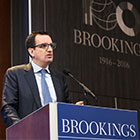
They present themselves as a policy vanguard. But think tanks like Brookings have become startlingly backward-looking and incapable of charting a new path for the United States in the twenty-first century.

Dissent’s best from a year of outrage.

In The End of Eddy, Édouard Louis uses literature to enliven working-class society in a way that neither sociology nor history can.

Starting in January, smoking a joint will become almost as legal as drinking a beer in California. But will regulation of the marijuana industry bring an end to the harms of the drug war?
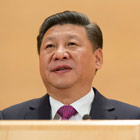
Recent international accolades for Xi Jinping’s China mask an alarming turn in the country’s politics.

Liberals owe Doug Jones’s win to a rich history of black women’s organizing in the South. When will they really start listening?
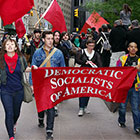
The millennial embrace of socialism has allowed a new generation to draw inspiration from a long legacy of struggle.

“I am not looking for approval,” Kaepernick has told the media. “If they take football away, my endorsements from me, I know that I stood up for what is right.”

Holiday travel can be stressful, and doubly so for the workers who make that travel possible. We hear about the flight attendants and baggage handlers organizing this holiday season.
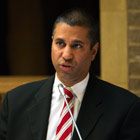
The net neutrality repeal shows that it’s not enough to regulate the telecom giants. We need to bring the internet under public control.

We meet two Bangladeshi Canadians, who help us parse the little-understood term “climate refugee” and the unequal ways climate change is felt around the world.

How “There Is No Alternative” gave us Donald Trump.
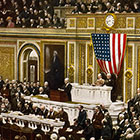
The American surveillance state was launched 100 years ago during the First World War, primarily to spy on and indict U.S. citizens who protested the war and the draft.